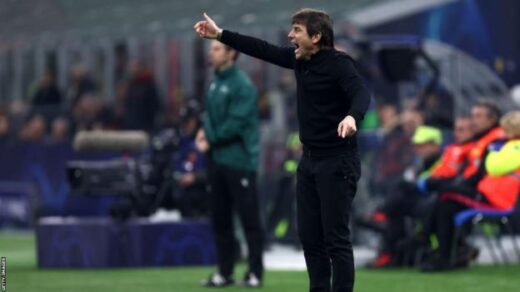LUSAIL, Qatar — So it turns out you can buy football history. From its inception, the 2022 World Cup in Qatar has been blighted by allegations of corruption and off-field controversy, yet it climaxed on Sunday with a showpiece that has a powerful case for being the best final of all time.
It really could not have been scripted more perfectly for the host nation. The two adopted sons of Qatari-owned Paris Saint-Germain, Lionel Messi and Kylian Mbappe, were at the epicentre of a pulsating, breathless 120 minutes that ebbed and flowed and ended with the former cementing his legacy as the greatest footballer in history.
If there was a match to cloud the conversation about whether the World Cup should ever have been staged here, then this was it. The stakes are usually so high in a World Cup final that it inhibits performance, yet even within that suffocating context, the talk around Messi and Mbappe had reached such impossible levels that it felt inevitable the game would collapse under the weight of its own narrative.
Somehow, it exceeded all expectations.
– Argentina win World Cup: Argentina GK on penalty heroics: ‘I did my thing’ | Argentina fans flood streets after final win | Messi won’t retire after World Cup win
“The match was completely insane,” Argentina manager Lionel Scaloni after the game.
Argentina were brilliant, then inhibited. France were lifeless, then electric. Angel Di Maria was superb. The 2-0 scoreline in favour of the Albiceleste became 2-2 in a flash as Les Bleus woke from their 70-minute slumber, stirring into life with two goals in 97 seconds, the second a wonderful snapshot of the devastation that Mbappe’s rare mixture of technical prowess and athletic ability can cause.
This was the past and the future wrestling for the present before our very eyes. Messi, now 35 and in his final World Cup match, scored his seventh goal of these finals as a game played at a staggering intensity stretched remorselessly, absorbingly into extra time.
Advantage Argentina, again. Yet France responded. Mbappe showed staggering composure to equalise from the spot with 118 minutes on the clock.
Time waits for no one, and suddenly Messi looked like he was being left behind. Randal Kolo Muani could have won it when clean through in added time at the end of extra time, but Emiliano Martinez produced the save of his life to deny him. There was still time for substitute Lautaro Martinez to add to his quite incredible catalogue of misses at this World Cup, planting a free header off-target at the other end.
Penalties settled things. A magical, titanic contest settled by the reductive 12-yard shootout. Mbappe went first and scored. Obviously. Messi went next and scored. Obviously.
Martinez saved from Kingsley Coman, and when Aurelien Tchouameni dragged his effort wide, the gap became too great. Gonzalo Montiel struck the winning spot kick but, inevitably, Messi commanded everybody’s attention.
The cacophony of noise created largely by Argentina’s ferocious and numerically impressive support reached new heights. Elation. Relief. History.
“This squad, these people, play for the people, for the Argentina fans. That’s what I have always seen,” Scaloni said of his players. “There are no rivalries, everyone is pulling the same direction, and this is for the country. The players broke their backs, they have achieved this title because they understood what they had to do on the pitch.”
The live television feed inside the stadium cut between those ultra-sharp 8K images of glory and despair, Messi orchestrating the celebrations at the end where the penalty shootout took place, Mbappe trudging around the pitch with a vacant stare, almost oblivious even to French President Emmanuel Macron drifting by with words of consolation.
Suddenly, Messi took hold of a microphone to address the crowd: “Vamos Argentina,” he said, adding a profanity. Fair enough.
Qatar wanted to redefine its image, bolster its standing in the Middle East and change perceptions of the region through this tournament. For several years in the build-up to this World Cup, this tiny Gulf State faced widespread criticism for its treatment of LGBTQIA+ people, migrant workers and women. It insists progress has been made in those areas, not least through the abolition of the kafala system, but being gay is still illegal, and the Supreme Committee has been less than transparent in conveying the true reality for migrant workers working on construction sites.
Now it has a new contribution to the global conversation: It is the place where Messi was crowned the undisputed king of his craft. He completed his coronation in Lusail, a city just north of Doha that essentially didn’t exist 20 years ago. And all it cost was about $220 billion.
The trophy presentation party included FIFA president Gianni Infantino, the Emir of Qatar, Tamim bin Hamad Al Thani, Argentina FA president Claudio Tapia and Macron. The pictures were flawless, just as Lusail Stadium itself is, if you can somehow separate the human cost. “It was the World Cup of records,” France boss Didier Deschamps said afterward.
Mbappe, who became the second player after Sir Geoff Hurst to score a hat trick in a World Cup final, won the Golden Boot. Messi won the Golden Ball for best player and the World Cup. Thirty-six years after Diego Maradona did the same, Messi defined a tournament in his own image. It could not get any better than that for Qatar.
Except they tried.
As the painfully drawn-out process of actually giving him the Jules Rimet Trophy lingered on, the emir produced a shawl, known as a bisht, for Messi to wear. A bisht is a ceremonial piece of clothing worn by Qataris, and giving it to Messi ensured Qatar had an indelible mark on the defining, iconic sporting image of this tournament that, surely, should have been about the winners, not the hosts.
Time will tell if there is a positive political or social legacy from these finals. The sporting legacy is already secure.


